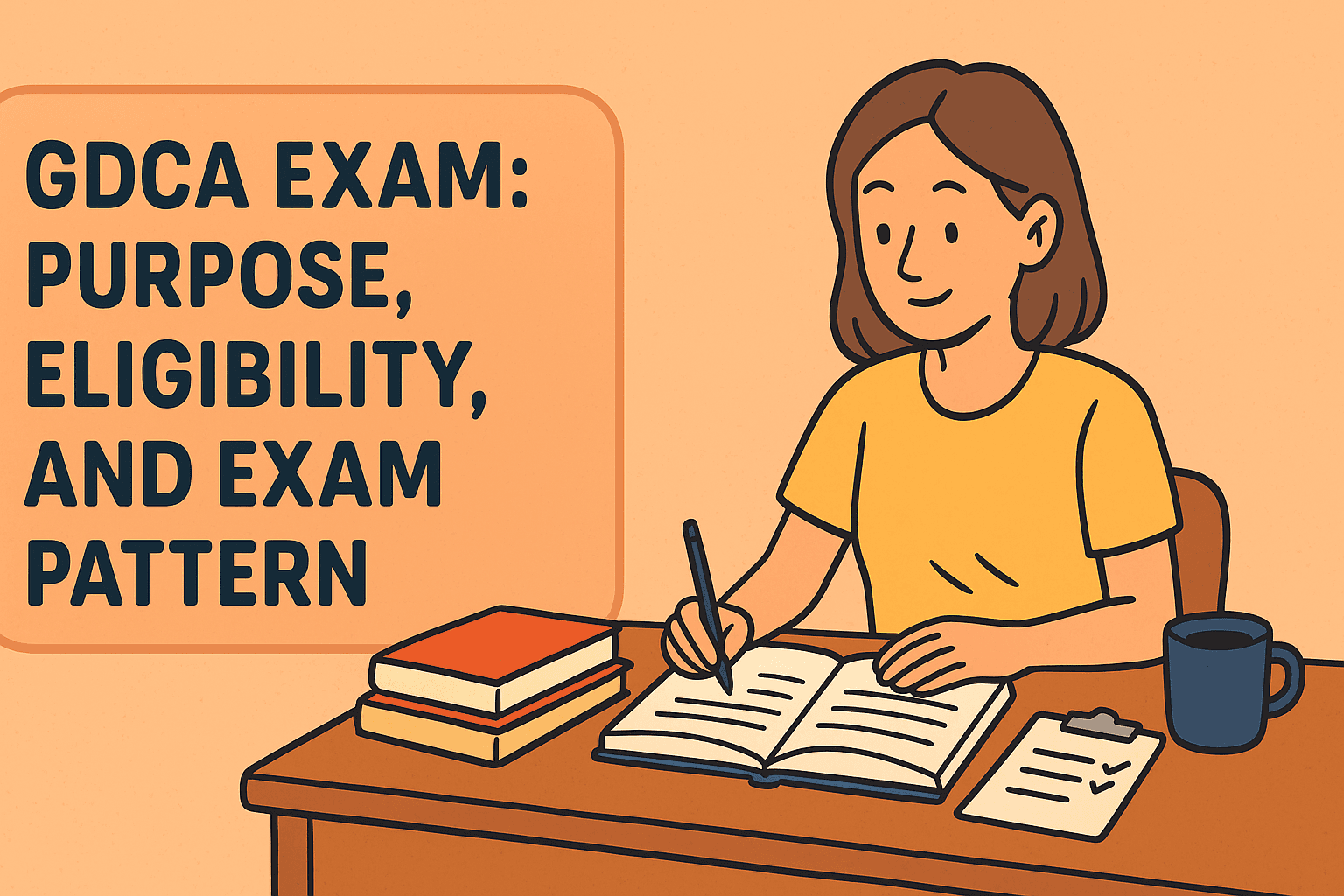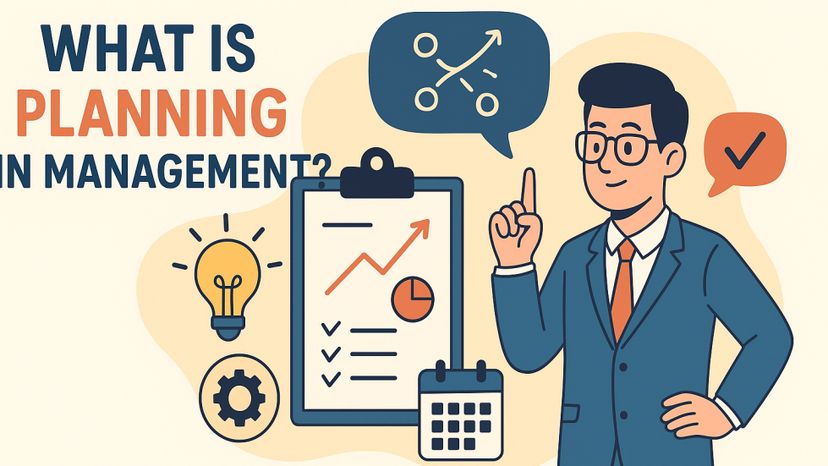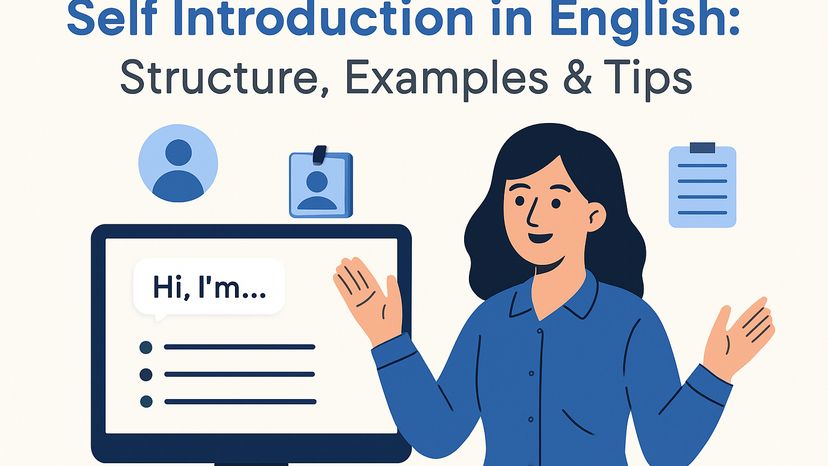The world of commerce is the backbone of the economy. These legends make sure that the cash flow stays intact even if a world war breaks out. Whether it be Sensex, or your regular bank, the citizens always get their accurate information all the time. This may take a few minutes to check, but behind the scenes, a lot of complexity is going on. This is not a small feat, and many certificate programs exist to make sure of that. The GDCA exam is just like one of those programs that plays a massive role in the financial sector.
GDCA full form is the Government Diploma in Cooperative Accountancy, which is an exam for students who want to enter the cooperative societies. This gives them the green ticket to advertise themselves and also get some high-paying jobs in commerce. So, without any further ado, let’s see what GDCA is, how the GDCA exam is conducted, and what the GDCA exam syllabus is in 2025.
GDCA Exam Purpose
The GDCA exam plays a big role in introducing new bloods in the cooperative sector. So it goes without saying that the GDCA exam plays a significant role in lightening up the future generations of India who will eventually replace the existing employees in accounting, auditing, financial management, and so on. So, here’s a simple breakdown of GDCA purpose in action:
- To introduce accounting personnel to the cooperative sectors.
- To equip professionals with these subjects:
- Cooperative laws
- Financial management
- Auditing
- Taxation
- Cost accounting
- To meet the demand of professionals needed in such sectors.
- To convert standard accountants into professional accountants.
- To enhance career opportunities for accountants.
GDCA Exam Eligibility
The GDCA exam is not a recruitment exam, so there is no weird physical test, interviews, or anything else involved. Candidates only need to take the exam once, and they will get their results and certificate later on. So, the GDCA eligibility criteria are as follows:
- Education:
- An undergraduate degree in commerce or any related field.
- Postgraduate students are also welcome to apply as well.
- Experience:
- General level experience in accountancy
- Decent knowledge of cooperative society
- Internships on the cooperative day-to-day operations. These are usually gained through additional certificate programs.
- Age and Residency:
- Must be an Indian citizen.
- Age must be above, but not limited to 21 years.
- Experience:
- Undergraduate candidates need an experience of 3 to 5 years.
- Postgraduate students may need less, but always check the official announcement before applying.
- Usually, experience certificates are required, but not mandatory in every case.
GDCA Exam Pattern
The exam pattern for the GDCA exam also remained for the last decade. It has two papers, and these papers are covered in a span of three days. Here are all the details you need to know:
- Paper 1:
- This paper includes multiple-choice questions or MCQs for short and short-answer questions.
- It mostly covers the fundamental aspects of accountancy, and these GDCA subjects generally pop up in the first paper:
- Co-operative Housing Management
- Types of Housing Societies
- Maintenance of Account Books and Registers
- Execution of Conveyance Deed
- Duties and Powers of the General Body and Managing Committee
- Paper 2:
- This paper covers the polar opposite of the first one, it’s all about practical and subjective questions.
- Here are a few examples of GDCA subjects covered in the second paper:
- Accountancy principles
- Final Accounts
- Entries of Bills
- Books of Accounts
- Depreciation and its methods
- Marking Scheme:
- Paper 1 carries a 50% mark.
- Paper 2 carries a 50% mark.
- Passing Mark: 50%
- Duration and Timing:
- Each paper lasts for 3 hours.
GDCA Diploma
GDCA exam is a diploma and not a graduation. That’s why both the eligibility criteria and the syllabus do not cover the same level of deep knowledge as the UG or Pg programs in commerce. For example, an Actuary will have more knowledge about the financial sector because they can only become that after completing a full postgraduate course. The same goes for doctors and other professionals.
That's why, on one hand, this is a good way to enter the workforce, but if you can afford a postgraduate degree, always aim for that. It will not only provide you with better offers. But also a far better knowledge base that can be used in multiple sectors like Private, public, financial, insurance, and so on.
Frequently Asked Questions
Q1. What is the GDCA full form?
Ans. GDCA stands for Government Diploma in Cooperative Accountancy. It is basically a certificate exam for accountants, which is somewhat similar to the CA Intermediate and Foundation Exam from ICAI. In short, GDCA is a massive credential for those who seek high-paying jobs in the cooperative sector.
Q2. How difficult is the GDCA exam?
Ans. The GDCA exam is not considered that challenging in this day and age. Because it has a passing mark of 50%, which is a good base for a lot of students to pass out. And the GDCA exam syllabus is also manageable by most students. However, the end result will absolutely depend on how much time and effort one puts into their studies.
Q3. How much do the GDCA course fees cost?
Ans. The GDCA is an exam, not a course. So the official GDCA course fees for the exam itself is around Rs. 800/- only. But if you are wondering about the coaching fees, that is a different story. It can be as low as Rs. 5,000 to up to Rs. 17,000. Always make sure to check the official numbers from the GDCA centers beforehand.
Q4. When GDCA result date usually announced?
Ans. There is no clear indication of the actual date. But the results have constantly been shown around the end of the current year or the start of the next year. Let’s say you took the exam in 2025, then you can expect your result by December 2025 or January 2026.
Q5. What are the GDCA passing marks?
Ans. You need at least 50% to be considered passed. Ranks and other factors may decide whether your marks are up to the industry’s standard or not. But 50% is usually the GDCA passing marks since last decade.











